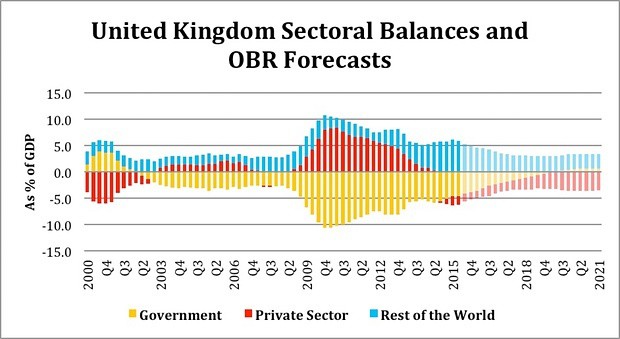Last week I watched BBC Question Time. Not something I do often, and not something I would care to repeat. It’s what happens when news is treated as entertainment. Three politician panellists put forth their careful platitudes, but at least showed some grounding in reality (none of them were in the Donald Trump school of politics). No doubt to spice things up the BBC added two journalists to the panel. They proceeded to spout a lot of provocative rubbish, in the way that you can when you are unaccountable for what you say. The audience chipped in with their own angry views. There was no time to unpick anything anybody said. It was all anger and provocation; there was no time for truth or solutions.
Syria came up as a subject, in the context of whether the RAF should extend its bombing to Islamic State targets in that country. It was striking that everybody seemed to think that Syria’s troubles were both our fault, and that it was our responsibility to sort them out. “Our” in this case being a rather fuzzy conflation of the the UK and the West generally. It is an attitude that I will call “post imperialism”. It is an advance on imperialism but shares much the same view of the world. It should be challenged.
The imperial era was at its height before the First World War broke out in 1914. In these times people in Britain and in other leading nations divided the world into three camps. On the one hand were the civilised countries, being the major powers: Britain, the USA, France and Germany at a minimum. Then there were the uncivilised or semi-civilised ones. The former had a positive duty to civilise the latter, and the favoured method was through colonisation, or other inclusion in an imperial domain. Then there were the countries in between: Russia, Turkey, Japan and so on, who were bit-players of different levels of importance.
Apart from a general mission to civilise, the major powers felt that empires were a good thing for the imperial powers themselves. This was mainly a matter of prestige, but various other economic and military benefits were widely touted. Failed states and political vacuums were therefore regarded as opportunities for imperial expansion. The main risk was of clashes between the rival powers. So the leaders of these major powers, and most of their people too, felt that what went on in any part of the “less civilised” world was their business. The doctrine of non-interference with the internal affairs of other states only applied to other major powers. China had particular reason to be aggrieved, as the major powers felt they could do what they liked, from grabbing port facilities to promoting the opium trade.
Post imperialism is definitely an advance. We now recognise that imperial possessions are more trouble than they are worth. Failed states are regarded as threats rather than opportunities. But there is still an attitude that the world is their business from the old colonial nations, and the US, and its implicit division of the world between the civilised and less civilised. It follows from this that practically any disaster anywhere in the world, outside a select group of stronger nations, is somehow the responsibility of these powers, and blame should be pinned on their political leaders. China and India are among the few big nations that reject this notion, with perhaps some marginal exceptions in their near-abroad. Russia shares the post imperialist attitude, but is bitter at being left out of the post imperialist club. The defeated powers of the Second World War, Germany and Japan, have more complex attitudes, it must be added and it wouldn’t be right to label them as post imperialist – though Japan’s Prime Minister, Shinzo Abe, wants to be.
But the trouble is that these post imperialist nations have no idea how to establish peaceful, thriving polities amongst the “lesser” nations. Do they back military strongmen, like Colonel Gadaffi, to preserve at least some semblance of stability and a functioning state? As soon as they do, these dictators push the limits to see how oppressive and corrupt they can be before they are rejected. This often leads to a catastrophic breakdown. Do they carry out “liberal interventions”, set up a new government and leave? But successes are rare (Sierra Leone perhaps) and the failures even more catastrophic (Iraq and Afghanistan).
So what we are left with is an incomplete “do something” idea, which involves finding some villains and hitting them with advanced weapons while keeping as few servicemen as possible in harm’s way. This has never worked, of course. But even some quite respectable people, like the Economist magazine, seem to favour it as better than nothing, which is a doubtful proposition.
So what do I suggest? We should step back and not assume that the great powers are ultimately responsible for any political mess that arises. There are plenty of more local people that can take the blame for the rise of IS, for example. Iraq’s Nouri al-Maliki for his combination of malign neglect and downright oppression of Iraq’s Sunni tribes. The leaders of Iran, Saudi Arabia and Turkey for stirring the pot without any interest in establishing a stable alterative. And Bashar al-Assad, who, though more competent than Mr Maliki, knew no other form of governance than outright oppression. And yet, with the exception of Mr Assad, criticism of these figures in the west is muted. It is much more fun to blame Tony Blair or George Bush. The record of both these men is atrocious, but it really isn’t helpful to keep blaming them as if they were the only grown-ups in the room. All that does is encourage the local powers to keep stirring the pot in the hope they will get western arms – or prestige from defeating them.
In the long run, the situation will only improve when the local powers start to practice mature statesmanship. The should be establishing diplomatic solutions with each other rather than fighting proxy wars and seeking to get outsiders involved. That will only start to happen when the western powers let go. No doubt limited humanitarian interventions will still be needed. But at some point we must grow up and admit that we are imperial powers no longer.


